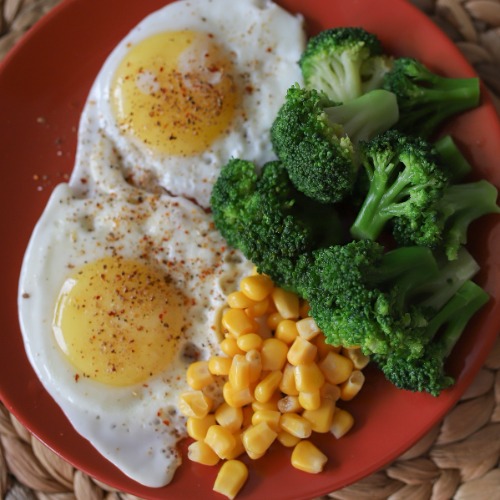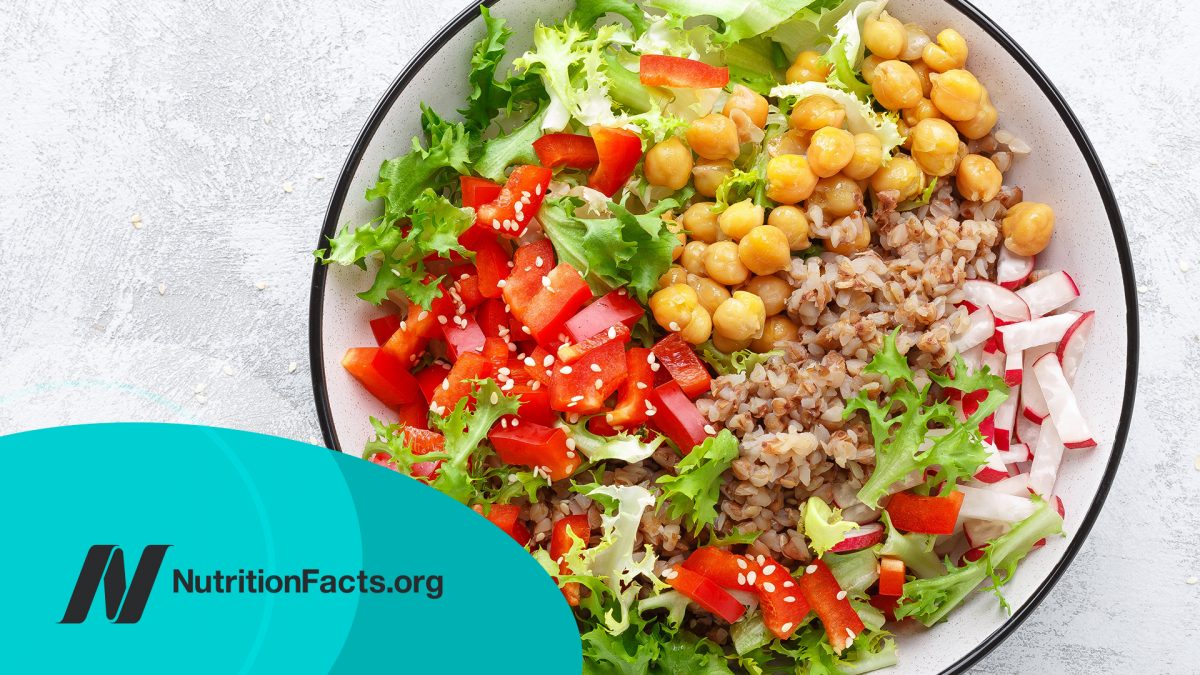
TMAO
TMAO, short for trimethylamine oxide, was identified when the blood of patients who had experienced a heart attack or stroke was compared to the blood of those who hadn’t. The more TMAO people had in their blood, the more likely they were to go on to suffer a heart attack, stroke, or otherwise die prematurely. Where does TMAO come from? Just as short-chain fatty acids are produced by good bacteria in our gut when we eat fiber, TMAO originates from bad bacteria in our gut when we eat lots of choline (concentrated in eggs, but also lecithin supplements) or carnitine (concentrated in meat, but also some energy drinks).
If you eat eggs or meat, you get a bump in TMAO levels within hours, unless you recently took antibiotics that wipe out your gut flora. In that case, it can be weeks before your bad bacteria grow back. Alternately, you can prevent the growth of these bad bacteria by not feeding them in the first place. Feed a vegan a steak, and they make virtually no TMAO, presumably because they hadn’t been fostering the growth of steak-eating bacteria.
The egg and beef industries funded a joint study that showed TMAO levels were lowest after eating the non-egg and non-beef control food: fruit. Even relatively choline-rich plant foods don’t seem to cause a problem. For example, two ounces of pistachios every day actually seemed to cause a reduction in levels.
TMAO may help explain why those who eat more plant-based diets are more protected from heart disease. What about obesity? Obese individuals seem to churn out more TMAO, so does avoiding carnitine and choline-rich foods help with weight loss? Subjects with greater reductions in carnitine and choline were significantly more likely to experience weight loss and waist slimming, while those with increases in carnitine or choline were about twice as likely to fail to lose weight over a two-year period.
For substantiation of any statements of fact from the peer-reviewed medical literature, please see the associated videos below.
Image Credit: Ekaterina Ershova from Pixabay
Popular Videos for TMAO


Egg Industry Response to Choline and TMAO
How the egg industry funded a study designed to cover up the toxic trimethylamine oxide...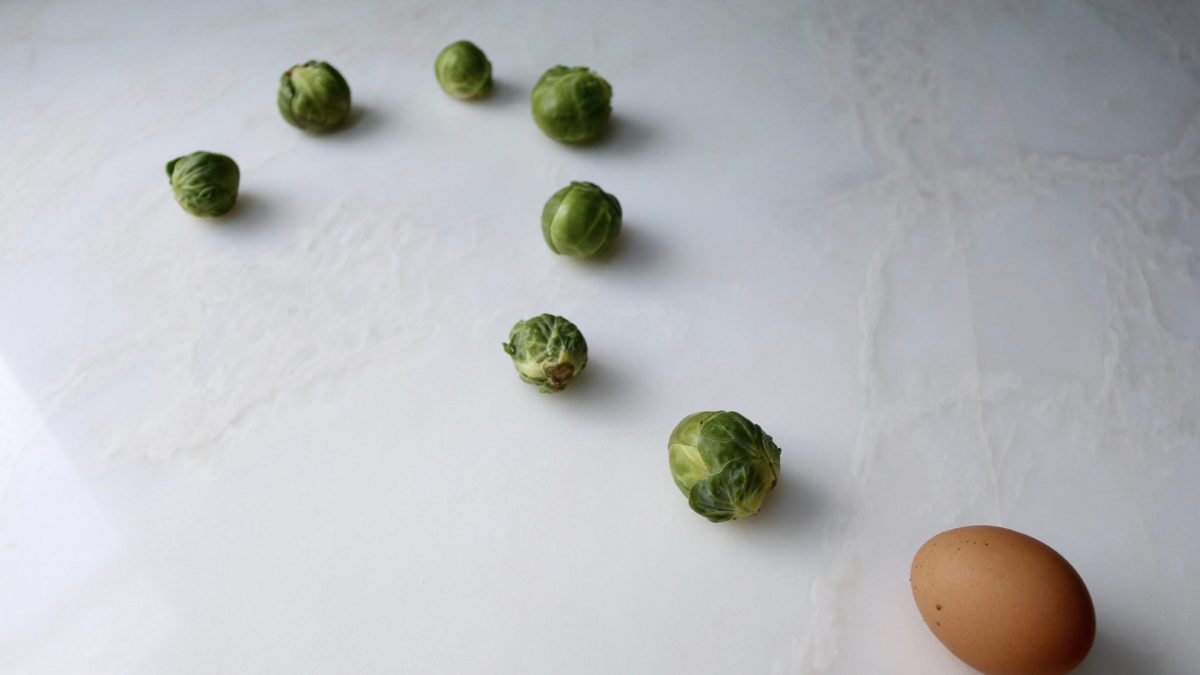
How to Reduce Your TMAO Levels
Should we be concerned about high-choline plant foods, such as broccoli, producing the same toxic...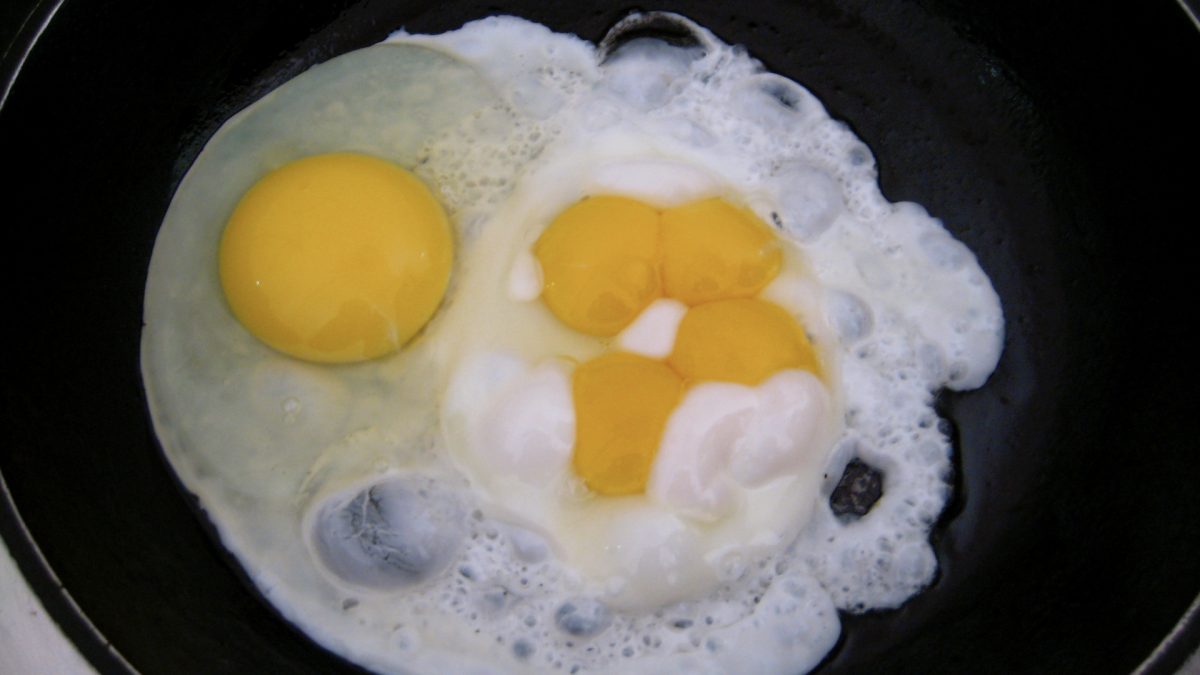
How Our Gut Bacteria Can Use Eggs to Accelerate Cancer
The reason egg consumption is associated with elevated cancer risk may be the TMAO, considered...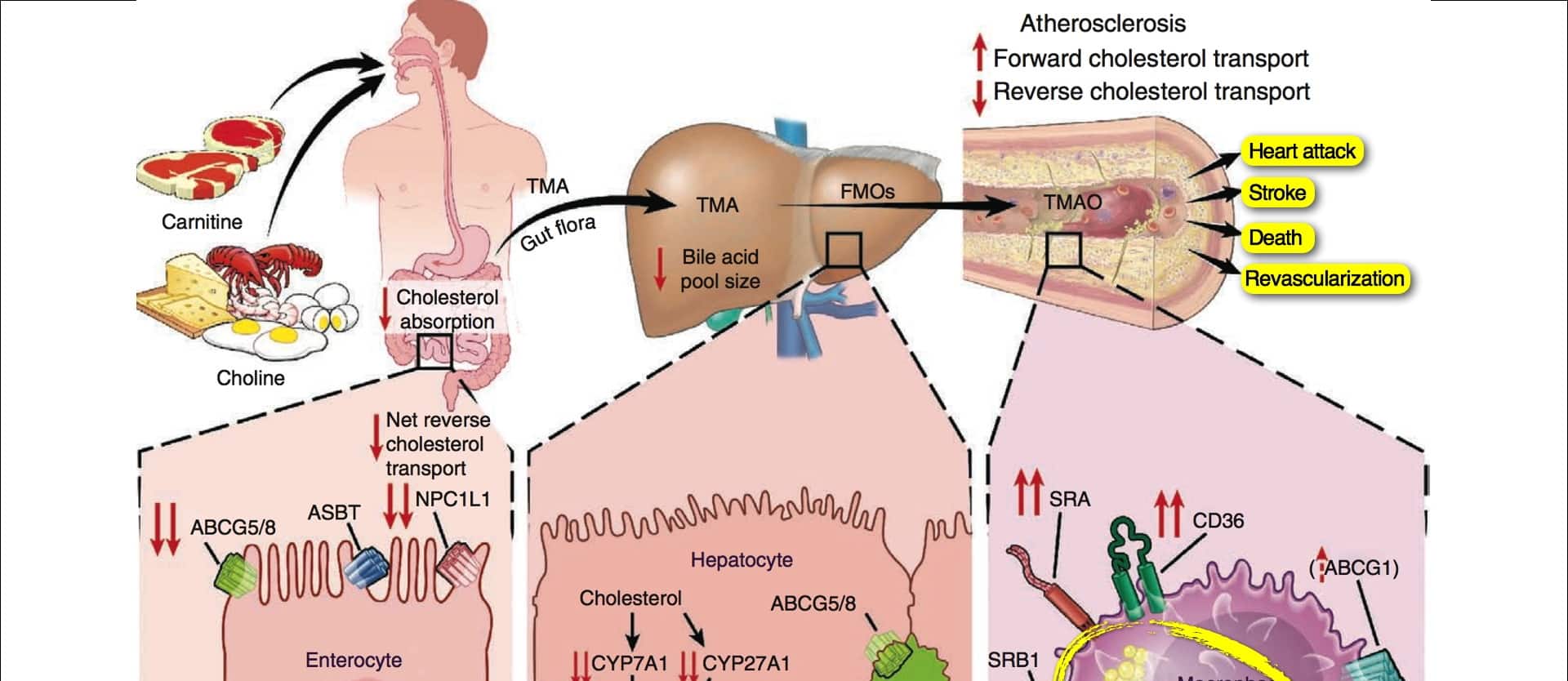
Carnitine, Choline, Cancer, & Cholesterol: The TMAO Connection
Expanding on the subject of my upcoming appearance on The Dr. Oz Show, a landmark...All Videos for TMAO
-

Are Beyond Meat Plant-Based Meat Alternatives Healthy?
The SWAP-MEAT study puts Beyond Meat products to the test.
-

Lower Protein Diet Proven to Help Kidney Disease
How might we cut the risk of dialysis and death in half?
-

How to Cultivate a Healthy Gut Microbiome with Food
Our gut flora is determined by what we eat, for good or for ill.
-

Can Vegan Fecal Transplants Lower TMAO Levels?
If the microbiome of those eating plant-based diets protects against the toxic effects of TMAO, what about swapping gut flora?
-

Is Heme Iron the Reason Meat Is Carcinogenic?
Rectal biopsies taken before and after eating meat determine the potentially DNA-damaging dose of heme.
-

What Not to Eat for Stroke Prevention
What is the relationship between stroke risk and dairy, eggs, meat, and soda?
-

Best Foods for Colon Cancer Prevention
A low-fiber diet is a key driver of microbiome depletion, the disappearance of diversity in our good gut flora.
-

Eggs and Breast Cancer
How few eggs should we eat to reduce the risk of prostate, ovarian, colon, and breast cancer?
-

How to Reduce Your TMAO Levels
Should we be concerned about high-choline plant foods, such as broccoli, producing the same toxic TMAO that results from eating high-choline animal foods, such as eggs?
-

How to Treat Heart Failure & Kidney Failure with Diet
One way a diet rich in animal-sourced foods like meat, eggs, and cheese may contribute to heart disease, stroke, kidney failure, and death is through the production of toxin called TMAO.
-

Microbiome: We Are What They Eat
What happens to our gut flora when we switch from a more animal-based diet to a more plant-based diet?
-

How Our Gut Bacteria Can Use Eggs to Accelerate Cancer
The reason egg consumption is associated with elevated cancer risk may be the TMAO, considered the “smoking gun” of microbiome-disease interactions.
-

How to Develop a Healthy Gut Ecosystem
What we eat determines what kind of bacteria we foster the growth of in our gut, which can increase or decrease our risk of some of our leading killer diseases.
-

Egg Industry Response to Choline and TMAO
How the egg industry funded a study designed to cover up the toxic trimethylamine oxide reaction to egg consumption.
-

Eggs, Choline, and Cancer
Choline may be the reason egg consumption is associated with prostate cancer progression and death.
-

Carnitine, Choline, Cancer, & Cholesterol: The TMAO Connection
Expanding on the subject of my upcoming appearance on The Dr. Oz Show, a landmark new article in the New England Journal of Medicine shows that choline in eggs, poultry, dairy, and fish produces the same toxic TMAO as carnitine in red meat—which may help explain plant-based protection from heart disease and prostate cancer.
